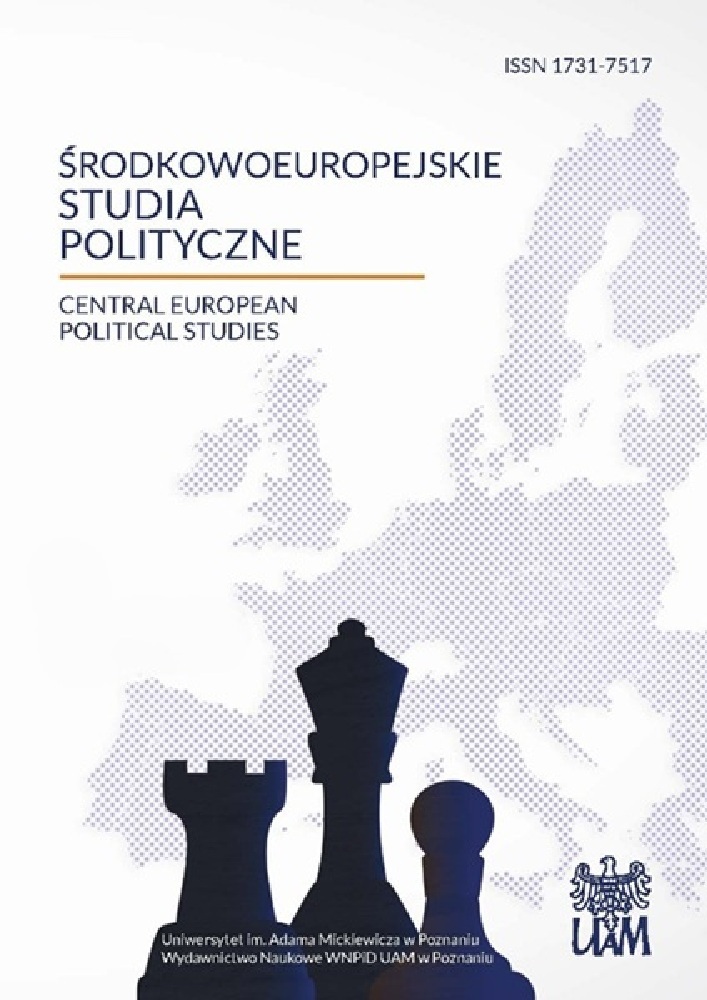Abstract
During the political transformation in Poland, electoral law was frequently changed. The general principles, already adopted in 1991, were maintained in parliamentary elections (to the Sejm). The changes only affected the detailed solutions concerning how the votes were calculated as mandates, and the sizes of constituencies. The so-called elective thresholds, which were introduced in 1993, have been maintained. In practice, the result of the current system of parliamentary elections is that the parties that attract approximately 25% of the votes cast by all those authorized to vote, win over half the parliamentary mandates, thereby exercising power. Therefore, the claim that a democratic electoral system is based on the principle of majority rule seems doubtful here, as what we actually get entails the rule of the largest social group, or at least the one that has the most effective organization. Contrary to popular belief, the majority elections to the Senate do not change the above rule. A voter supporting a given candidate in these elections is mainly directed by the political group which supports this candidate. The electoral system to the Senate was finally formed in 1991 and only slightly amended in 2001. Asingle-mandate constituency in the elections to the upper chamber of the parliament was only introduced by Electoral Law in 2011.References
Antoszewski A., Ordynacje wyborcze do parlamentu i ich polityczne konsekwencje, w: Ewolucja polskiego systemu politycznego po 1989 roku w świetle komparatystycznej teorii polityki, red. A. Antoszewski, Wrocław 1994.
Ewolucja polskiego systemu politycznego po 1989 roku w świetle komparatystycznej teorii polityki, red. A. Antoszewski, Wrocław 1994.
Gebethner S., Wybory do Sejmu i Senatu 1989 r. Wstępne refleksje, „Państwo i Prawo” 1989, nr 8.
Leksykon politologii, red. A. Antoszewski, R. Herbut, Wrocław 1996.
Stelmach A., Zmiany prawa wyborczego w Polsce w okresie tranzycji systemowej, „Problemy Humanistyki” 1997, nr 2.
Ustawa z dnia 7 kwietnia 1989 r. ordynacja wyborcza do Sejmu Polskiej Rzeczypospolitej Ludowej X kadencji, na lata 1989–1993, Dz. U. 1989, Nr 19, poz. 102.
Ustawa z dnia 28 lipca 1990 r. o partiach politycznych, Dz. U. 1990, Nr 54, poz. 312.
Ustawa z dnia 28 czerwca 1991 r. Ordynacja wyborcza do Sejmu Rzeczypospolitej Polskiej, Dz. U. 1991, Nr 59, poz. 252.
Ustawa z dnia 28 maja 1993 r. Ordynacja wyborcza do Sejmu Rzeczypospolitej Polskiej, Dz. U. 1993, Nr 45, poz. 205.
Ustawa z dnia 12 czerwca 2001 r. Ordynacja wyborcza do Sejmu Rzeczypospolitej Polskiej i Senatu Rzeczypospolitej Polskiej, Dz. U. Nr 46, poz. 499.
License
Copyright
© 2011, Uniwersytet im. Adama Mickiewicza w Poznaniu, Wydawnictwo Naukowe Instytutu Nauk Politycznych i Dziennikarstwa
OPEN ACCESS
